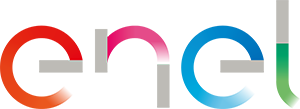Dealing with the Internet of Things
The definition Internet of Things, commonly shortened with IoT, has been created to describe the constantly evolving system of tools and applications that, through the sharing of data and information network, perform the appropriate actions.
Some "smart" objects have been in use for a long time, even in Italy – among these, wristbands and smart watches that interact with databases or with similar objects in the possession of other users.
The Politecnico di Milano has established an IoT Observatory in 2011 and every year it keeps track of this increasingly fascinating and widespread evolution.
The numbers are significant: in 2015, in Italy, the IoT market has reached a value of 2 billion Euros, registering 30 percent increase over the previous year. While far from the pervasive presence registered in other countries, such as the United States, it is apparent that the trend is one of a steady expansion of both user base and available services.
In some industries, IoT is already having a significant impact:
- Home automation, with tools for remote appliances management and other value added services for Smart Homes;
- Transport,with applications ranging from specific functionality management (e.g. wipers and lights), up to driverless cars;
- Robotics,used primarily in industrial production, but also for exploration and home care purposes;
- Telemedicine, for remote medical cunsultation and patient monitoring.
Applications for Smart Homes and transport have the best chance of intercepting the Italian public's interest. Home and car are focal points in people's lives; in addition, they are areas of excellence of the country’s industrial production. They are also the fields of action on which Enel is focusing attention and investments, with the goal of bringing smart opportunities in cities, transportation, in everyday life.
The launch of Open Meter and other activities favouring the Smart Grid diffusion in Italy are examples that go in the IoT direction; in addition, Enel is bringing the Internet of things within the company itself.
As stated by Marco Barra Caracciolo, Enel CIO, during the conference "Artificial Intelligence at Work held in Milan in 2016, Enel is experiencing a major transformation, which aims at optimizing activities and quality of working life. Simplification of processes, selection of efficient shared platforms as the hybrid cloud, implementations of sensors that adjust teams' logistics and workspaces, are just some of the solutions adopted by the company.
For the success of this evolution it is necessary to overcome the digital divide among the employees. After an assessment of the abilities of each person, training courses where organised, with the intent to bring all staff members to a good level of comprehension of the net and usage of the available digital instruments.
Well-coordinated actions, insisting on multiple fronts, allow Enel to be consistent, internally, with the innovation and sustainability that it already offers to customers and citizens.
Enel wants to be a veritable Smart company that thinks digital and embraces change.


